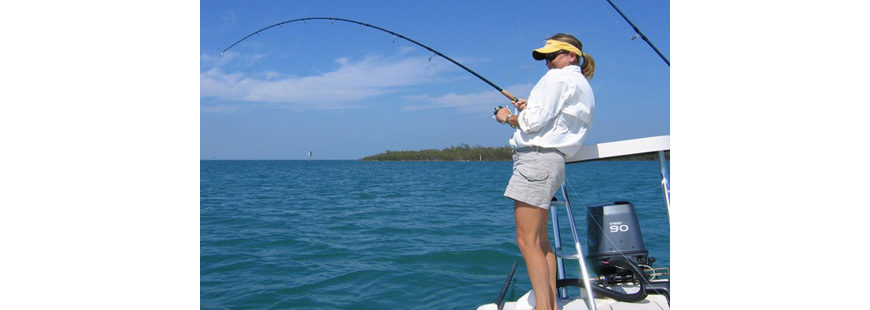Photo: Fishing in the Gulf of Mexico, via NOAA
Authors who contribute to this blog — including myself — are fond of stating that because of the Magnuson-Stevens Act, the United States has the best fisheries management system in the world.
It’s hard to argue with the results. 45 stocks have been rebuilt and the number of overfished stocks is at a record low. But a great fisheries management system can only take you so far.
You can have a perfectly managed system and still see your entire fishery decimated. The best known example is probably the BP drilling disaster off the coast of Louisiana. The spill cost the fishing industry anywhere from $95 million to $1.6 billion and anywhere from 740 to 9,315 jobs. A fisherman recently told me that even after nine years, he didn’t think the fish stocks have fully recovered yet.
Florida fishermen understand the limits of fisheries management, too. Red grouper is listed by NOAA as neither overfished nor undergoing overfishing. And yet commercial fishermen have been coming to Gulf of Mexico Fisheries Management Council meetings for a couple years now and telling managers that something was wrong.
The grouper fishermen aren’t catching fish. Quota has been going unused. Is it because of red tide? Habitat destruction? Competition from other fish? Migration because of climate change? Nobody seems to know yet. The only thing we do seem to know is that it’s not coming from overfishing.
#IChooseFish
In 2016, a chemical spill by a steel company owned by Formosa Plastics washed at least 70 tons of dead fish onto 125 miles of Vietnamese coastline. At least 40,000 workers who rely on fishing and tourism were affected by what some call the worst environmental disaster in the country’s history.
Protest erupted around the country as people struggled to get answers from Formosa and from a Formosa-friendly Vietnamese government. A spokesman for the Taiwanese conglomerate famously said that the Vietnamese needed to choose between catching fish and building a modern steel industry. In response, the Vietnamese people began using the hashtag #IChooseFish.
Formosa is now in the process of applying for permits for a new $10 billion chemical plant in Louisiana, just up the river from the fishing ports most devastated by the BP drilling the disaster. A few people in the Vietnamese community in New Orleans already familiar with Formosa have been opposing the plant, but so far no fishermen or fishing groups have taken a stand against the polluter, despite it having been responsible for poisoning residents in Taiwan, Port Lavaca, TX, and Baton Rouge as well.
The relationship between fishing and petrochemical development has always been tenuous in Louisiana. Jack Davis’s book “Gulf: The Making of an American Sea” documents a long and troubled history between the two industries.
Starting in 1924, the oil industry started seismic surveys to aid in offshore exploration. The preferred method at the time to study the ocean floor was “refraction,” or throwing dynamite into the water and listening to the sound waves after the explosion. The practice blew to bits every living thing within the blasting radius, including tons of seafood. Louisiana oyster fishers sued the industry in 1932 and 1933 and won a small settlement but not enough to slow down the practice. Dynamiting continued in the Gulf into the 1960s when air cannons became common.
With the BP drilling disaster as a notable exception, the seafood industry and the petrochemical industry have enjoyed a truce since the dynamiting stopped. In 1967, the shrimp festival and the petroleum festival in Morgan City, LA, merged to become the Shrimp and Petroleum Festival that is celebrated to this day.
A broader approach
Fisheries management has its limits. It tends to focus on overfishing because that has been a major source of historical pressure on the resource. Fisheries managers aren’t empowered to regulate the petrochemical industry or curtail the nutrient pollution coming from industrial agriculture that exacerbates harmful algae blooms.
The Pacific Coast Federation of Fishermen’s Association, led by Noah Oppenheim, officially recognized this when it sued the petrochemical industry for its role in climate change.
It falls on all of us who fish or anyone who eats and cares about fish to turn our gaze from the water back to land to protect what we love. We must counter the idea that the petrochemical industry represents progress and that we must choose progress over fish.
It’s time we choose fish.



We are now beginning to engage in the same fight on the east coast. Despite the objections of every state from Maine to Fla., the administration is charging headlong into pushing oil exploration with the use of sonic guns along a major piece of the eastern shoreline. There is sound science that these sonic guns will cause damage to cetaceous life, some already endangered and yet this juggernaut roles on. My observation of major disasters with oil rigs is not if there will be an accident but when.
Off the coast of New England we have some to the most productive fishing grounds in the world. We are already dealing with the consequences of ocean warming and it’s impact on fisheries, and now this looms in our futures. I have seen first hand the damage caused by major oil spills from barges and tankers in our coastal waters, I can’t imagine the catastrophe of a BP type of leak on our fisheries.